Domain names are important. People need somewhere to go online to visit your website, of course, and they are a major component of your brand. Whether you’re a hobby blogger, a small business owner, or part of a huge corporation, your domain name is representative of you. And while even the best domain name extensions (.com for example) aren’t as important as the primary domain (the elegantthemes in elegantthemes.com), don’t disregard them, either.
When deciding which domain extension is best, you have a lot of options. But .com is still the best domain extension you’ll find:
- It’s the most familiar domain extension and what most users expect.
- People have an easier time remembering .com than any other extension.
- It carries more authority, which improves your chances of getting backlinks.
Also, if you don’t have a .com, users are probably still typing it into their address bar by default. And if you don’t own the .com URL, they will very likely land on a competitor’s site.
That said, you have a lot of domain extension choices beyond .com, whether you’re going to purchase a few domains or just one that’s a little different from the norm. In this article, we’ll go over everything you need to know about the best domain name extensions for SEO.
What is a Domain Extension?
To understand domain extensions, you have to first understand domain names. A domain name is the URL you type into the browser to access a website, like elegantthemes.com. It’s the digital address of your site. You may or may not have gotten your domain name from your host — domain hosting and web hosting are different, but some providers bundle the services together.
A domain name extension is also referred to as a top-level domain (TLD). This refers to the letters at the end of the primary domain following the period. In our case, .com is the TLD for elegantthemes.com. (Don’t confuse this with a subdomain, which you can learn about here. In brief, a subdomain is an additional part of your URL, and it’s neither the primary domain nor the TLD.)
There are a lot of TLDs beyond .com. Like .net, .co, etc. There are TLDs for just about everything, even NFT domains. In terms of accessing your website, TLDs are equal. There is no technical difference in accessibility between a .com and a .net, for example. The user can open the website just as easily with one or the other. There are other differences, though.
Why Choose Anything But .com?
The .com TLD was originally intended for use only by commercial organizations, but today, it’s a URL standard for pretty much any type of site. A lot of the time, when you go to register a domain name, you’re hoping that a .com is available. However, there are plenty of reasons to choose another type of TLD.
The TLD can tell the user what your website is about or the type of website it is. A .org TLD usually means it’s a nonprofit; a .edu is going to be a school or education site. If you choose the wrong TLD, you could mislead your customers, like if you run a shop but use the .blog TLD instead of .shop. That’s why choosing the correct TLD is important for your brand.
Pricing also varies when it comes to TLDs. While .com is the most common and recognized TLD, you could pay much, much more for a .inc TLD. If you have the budget for a pricier TLD, your URL could communicate authority (assuming your website visitors know TLD hierarchy, that is) and it could also be valuable should you decide to sell. On the other hand, a less costly, more available URL like .net may diminish your authority — but if you have something like a hobby blog, that may not matter much, and you’ll save a lot of money.
Do the Best Domain Name Extensions Help SEO?
Domain extensions don’t have a direct impact on SEO, but they do have a lateral impact. Technically, a TLD isn’t going to affect your website’s placement in SERPs. However, the TLD you choose influences user trust, and that makes a difference when it comes to SEO. Less common TLDs are more often associated with spammy websites and are not always trusted by users. If you’re searching for something online, are you more likely to click on the .com website or the .xyz one? Exactly.
Country-specific TLDs, like .co.uk for the UK, also impact SEO. The site will be more visible to users in the specific region. If you have a .co.uk domain extension, you’ll reach many more users in the UK than in the U.S. because search engines will return location-based results. If you target users in a specific geographic area, consider a country-specific TLD; otherwise, don’t limit your site to who it can reach.
8+ Best Domain Name Extensions
The TLD you choose will depend on a few things: what’s available and how much it costs, your industry and business type, and your branding. Here are the best domain extensions to consider. (While we put .com in first place for obvious reasons, the other TLDs are alphabetical.)
1. .com
This one is a no-brainer. We’ve already established that .com TLDs are the most popular, recognized, and sought-after domain extension. Once used for commercial, for-profit businesses, it’s now the first choice for pretty much any type of website. If .com is available, buy it, even if you’re also going to purchase other TLDs for your business.
The .com TLD is for you if…
- You have a website. Period. This domain extension is for everyone.
- It’s available (and affordable). If your primary domain with the .com TLD is available and you don’t buy it, chances are that someone will and/or that users are already typing in the domain and finding nothing.
- You want to get backlinks. (Don’t miss these backling-building tips, either.)
2. .blog
A blog can be anything from a monthly journal of your thoughts to a daily feed of tips from your brand. What’s more important is what a blog post isn’t – it’s not a product page, a press release, a landing page that wants to collect your data… So when you use the .blog TLD, you clearly communicate what the user is going to see – and what they shouldn’t expect.
The .blog TLD is for you if…
- The primary focus of your website is the blog – or your website is only a blog.
- You use a blog-style voice, which is usually more casual than business speak.
- Your content is entertaining and/or informative, which is what people expect from a blog. You wouldn’t want to use .blog for a news website, for example.
- You want to distinguish your blog from your main website but keep the primary domains the same.
3. .co
The .co TLD may be further from where it began than any other extension on this list. Once the Colombian country code, it’s now associated with businesses, particularly startups. Beloved by entrepreneurs and businesses of all sizes, .co is the cool new kid (or the not-new kid who’s had a makeover and became cool afterward). It’s like the younger, fresher version of .com. And on top of being succinct and even trendy, .co is more widely available than .com.
Now, know that .co is less recognizable than .com, and if your primary domain with a .com TLD already exists, people are going to go there even when intending to visit your site. That’s a good case for purchasing both domains and directing the .com to the .co if you want to use the latter for branding purposes.
The .co TLD is for you if…
- The website is for a commercial venture, company, or corporation.
- You want to make a statement with your TLD about your brand.
- You’re not worried about competing with a .com or you own the .com for your primary domain.
4. .io
Once country-specific, referring to the BIOT, or the British Indian Ocean Territory, the .io TLD has made its way into the mainstream in recent years. Today, it’s one of the best domain name extensions for software-as-a-service (SaaS) companies and tech startups. Why? The TLD is similar to I/O, the abbreviation for “input/output,” which is a computing term.
The .io TLD is for you if…
- You have a tech startup or a SaaS company.
- You want your domain name to be succinct and easy to remember.
- Your budget can accommodate spending a little more for a domain extension — this TLD is a bit more expensive than some others.
5. .net
Like with .com, the .net extension can work for any type of website. Also, .net is sometimes the second-best option if a .com isn’t available, and these domains are usually less expensive, too. However, this TLD was originally meant for internet providers, and it’s still more common among tech and web companies. Whether or not to choose a .net domain can depend on your site. If you have a tech/web-focused site, no problem. If you have another type of website that could sound like a tech site, maybe steer clear of it. For example, if you have a baking website with “cookies” in the name and choose .net, it could be confused with web cookies.
The .net TLD is for you if…
- You’re in the IT, tech, or web industry.
- A .com domain isn’t available or it’s too expensive.
- Your non-tech-focused website won’t be confused with a tech site even with the .net extension.
6. .org
While .org is available to anyone now, it’s best known for representing only not-for-profit/non-profit organizations. Many people still think of it that way. This TLD won’t work well with just any website. Instead, it’s best for NPOs, political parties and politicians, and online communities. While .org conveys a quality website with trustworthy, reliable information, it’s not usually associated with commercial brands, and visitors won’t expect to purchase products.
The .org TLD is for you if…
- You have an information-driven website, like in the nonprofit or political realm.
- Your website builds and nourishes a community.
- The site is not commercial-based with the primary goal to sell products.
7. .tv
Here’s another TLD that started as a country code but is now used in a more general, non-location-specific way. Originally intended for Tuvalu, a country in the South Pacific, .tv is now used by TV and video brands (for obvious reasons).
The .tv TLD is for you if…
- Video is prominent on your website and a major component of your business.
- You want your audience to see how committed you are to video creation and that it’s at the core of your brand.
- You’re using your domain name as a way to set expectations — users will know the type of website they’re clicking onto.
8. .us
The .us TLD is specifically for U.S.-based users, so you won’t want to use this domain extension if you want to reach a more global audience. So long as you’re an individual, corporation, or nonprofit residing in and/or having your business operations in the U.S., you can use this TLD. Keep this in mind, though: .us was once used for government websites, but today’s it’s available to the public. However, it still has that governmental feel, so it’s best for sites that have an American or patriotic theme in some way.
The .us TLD is for you if…
- You’re targeting users in the United States.
- Your business operations are mainly in the U.S. or target American citizens/residents
- Your website uses American patriotism in some way, whether in content, marketing, or both.
9. .fm
Like .tv, the .fm TLD has been repurposed from the Federation of Micronesia’s country code into the de facto domain extension for audio services and podcasts. Typically a bit more expensive than other TLDs, if you’re running a radio show, podcast, or other audio-based brand/service, using .fm is a great choice to let users know immediately what they’re getting into. Pair a .fm TLD with one of these great podcasting plugins to create the ultimate audio experience.
The .fm TLD is for you if…
- Your site is based mostly (or wholly) on audio content
- You need your users to differentiate your audio brand from a similarly named non-audio brand.
- You have the budget for a more specialized domain to set yourself apart from competitors with more traditional TLDs
More Domain Extensions to Know About
Here are a few more domain extensions you may see as you’re looking to buy:
- .biz: While associated with businesses and e-commerce, it’s less popular and trusted than .com or .co.
- .edu: This TLD is only for educational institutions.
- .gov: This TLD is only for government agencies.
- .info: Short for “information,” this TLD may be useful to purchase if the .org isn’t available.
- .ly: While this is the country code for Libya, some companies use it as a clever way to spell something in the domain.
- .site and .xyz: These are a couple of common general-use TLDs (with .site being the more popular of the two).
Domain Extension Tools
While you can use your domain host to see what’s available, there are a few other domain extension tools you may want to check out.
Domainr
Domainr lets you plug in a word or phrase and then shows you which domains are available or taken.
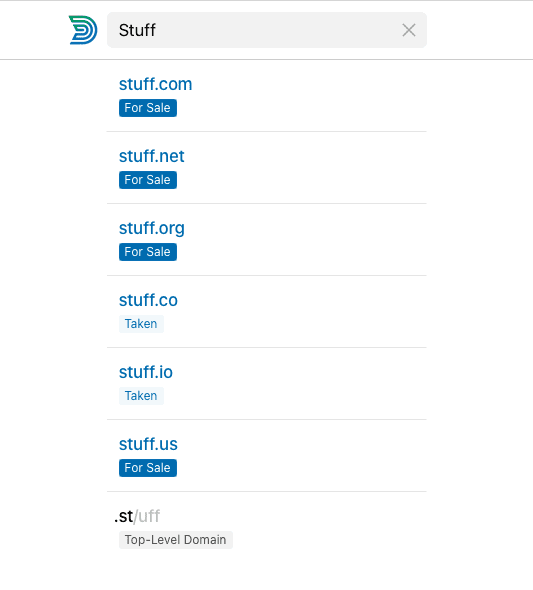
Clicking on a result will bring you to a page with more information.

Instant Domain Search
The Domain Extensions List from Instant Domain Search shows you all of the TLDs available beyond the basics. If you want something like .boutique or .investments as a branding move, check out this list. The website also lets you search for domain names to see what’s available.
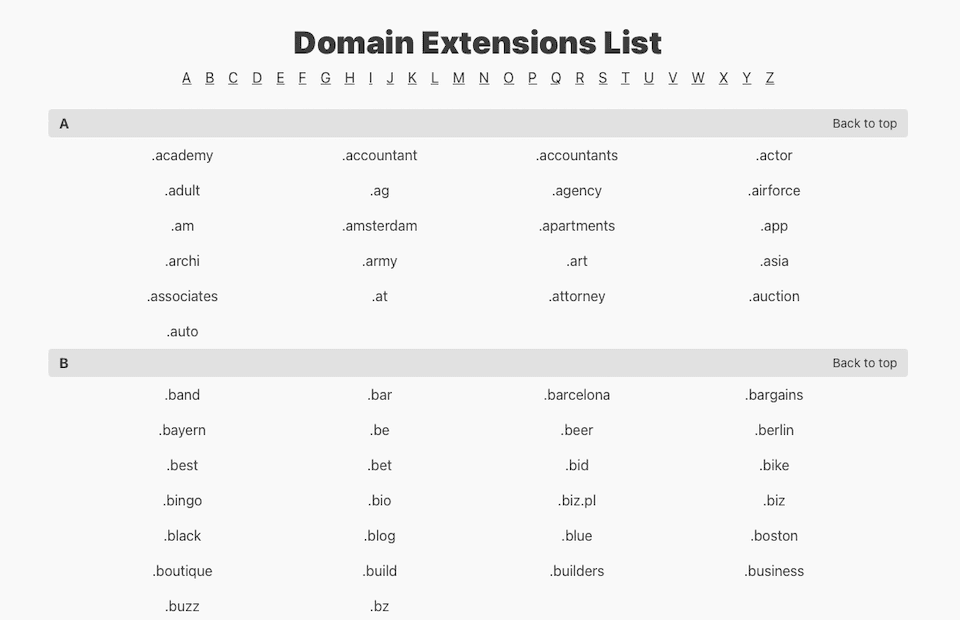
Spamhaus
Spamhaus has an abused-TLD checker so you can see how well (or how poorly) a TLD is regarded. While this is definitely not the only way to consider if a domain extension is worth it or not, if it’s high on the badness scale, maybe consider an alternative.
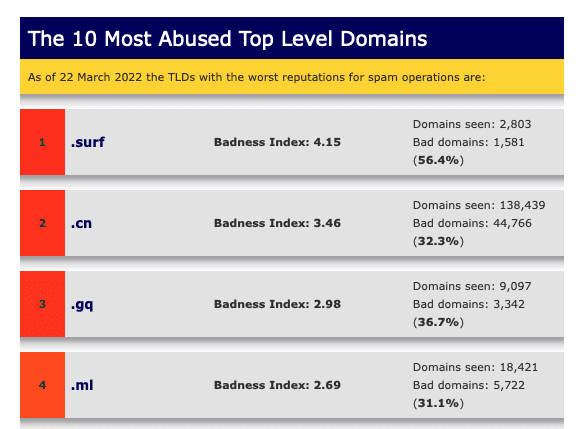
Whois
While Whois has a domain name search, it’s most useful if a domain you want is taken and you want to figure out who owns it, the date of registration, when it’s set to expire, etc.

Final Thoughts About the Best Domain Name Extensions
While your domain extension isn’t as important as your primary domain, it’s still an element to consider. Having a trustworthy and recognizable domain extension could mean higher traffic, more backlinks, and better SEO. On the other hand, having a less common but stylish or informational TLD could be great for your branding and quickly communicate to visitors what your site’s about. You also have the option to purchase several domains with the best domain name extensions and direct traffic to the main one, like your .com. And if you have your eye on a domain name that’s already taken, we have a guide for that.
Featured Image via WeeStudio / shutterstock.com






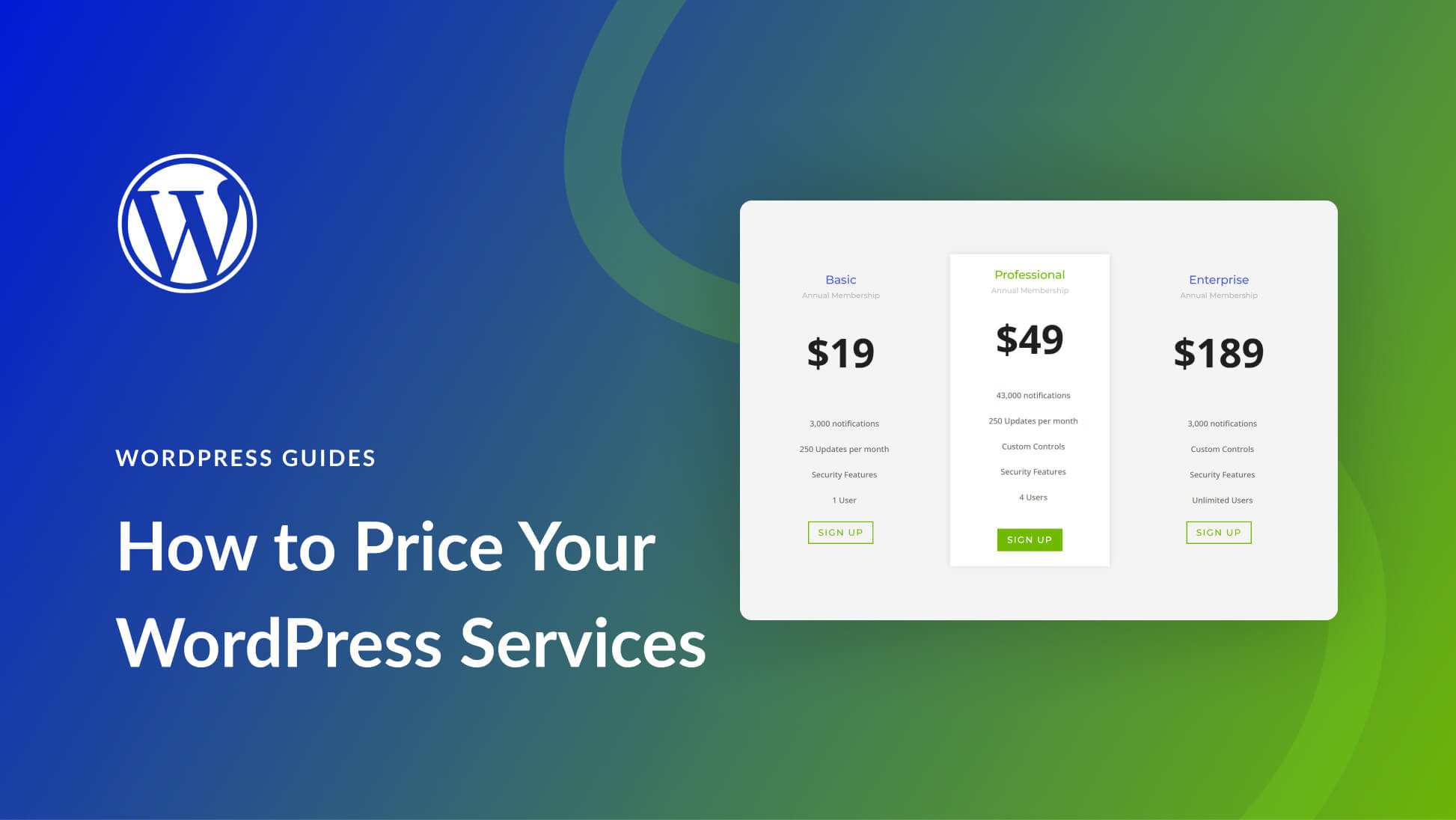
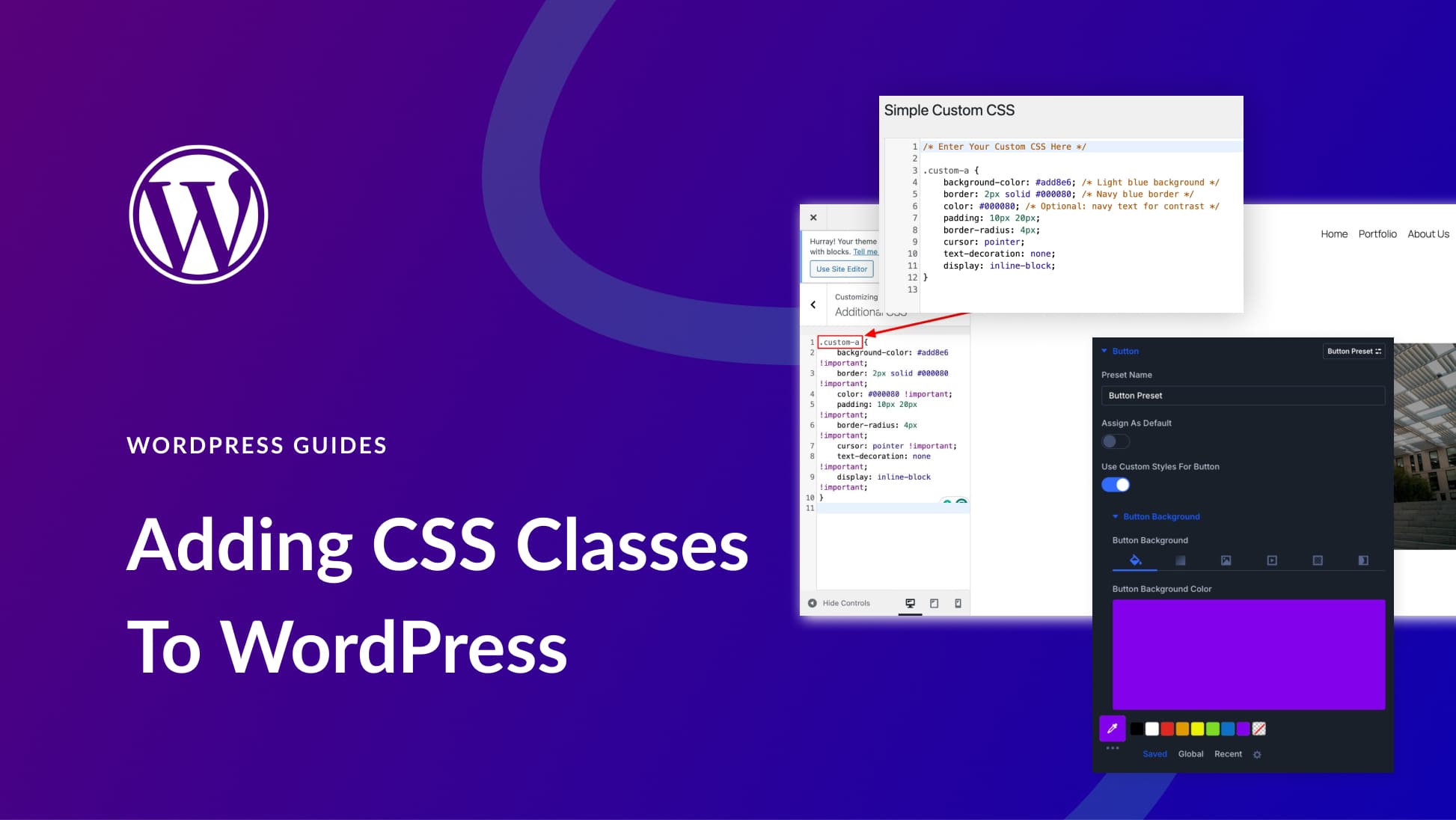

thank you very much for helping me tp understand more about seo
im starting ye new website and this post is very helpfull
And then there’s ( .au ) the new TL domain extension for Australia ! Along with many others. Regardless of what country you reside or do business in, I don’t think it has anything to do with trust or credibility.
Why should .com.be more trustworthy than .au or .com.au or .co.uk they are all essentially country based and might influence search results depending on what the search term is and probably from what location a searcher may have their IP address set to, I’m no expert, but I do know it has nothing to do with trust or credibility.
It has more to do with availability and names already taken on a first come first served basis in years gone by… hence the reason for new domain extensions around the world, making it easier for new start ups to access the name of their new business with a location based extension if they choose.
🙂
Lindsay, I find the title of your article misleading. Domain extensions do NOT affect search engine page rankings. At one point, you actually admit this. But then you claim they affect SEO because they affect trust. I agree they affect end-user trust, but they don’t play a role in credibility from a search-engine perspective.
I’m not sure why you mention domain extensions like .fm and .tv. Most of the subscribers to Elegant Themes blog are web designers and developers. So, extensions like .tech or .dev would be better suited for this audience.
A great explanation of why domain extentions are an important consideration and how they can indirectly affect SEO. I have recently advised a non-profit client to choose a .org.uk extension as .co.uk could be misleading. This post is definitely one I will be sharing. Thank you.
Thanks so much for your comment, Holly! And that sounds like good advice 🙂